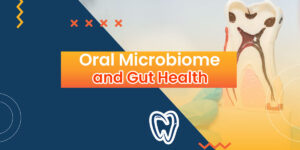A bright, radiant smile can significantly enhance your confidence and overall appearance. However, achieving and maintaining that picture-perfect smile requires consistent effort and proper dental care. Whether you’re aiming to improve the brightness of your teeth or maintain a healthy smile, here are expert tips that will help you achieve long-lasting dental health.
1. Brush and Floss Regularly
The foundation of any oral hygiene routine starts with regular brushing and flossing. Dentists recommend brushing your teeth at least twice a day—once in the morning and once before bed. It’s important to use a soft-bristled toothbrush and fluoride toothpaste, as these help remove plaque and strengthen your enamel. Don’t forget to replace your toothbrush every 3–4 months or when the bristles become frayed.
Flossing is just as important as brushing, as it helps clean areas between the teeth that a toothbrush cannot reach. Regular flossing removes food particles and prevents plaque buildup, reducing the risk of gum disease and tooth decay. For those who struggle with traditional floss, water flossers are an excellent alternative.

2. Limit Staining Foods and Beverages
Certain foods and drinks are notorious for staining teeth, which can dull your smile. Coffee, tea, red wine, and soda are common culprits, as well as dark berries and acidic foods. While it’s not necessary to completely eliminate these from your diet, consuming them in moderation can help maintain a brighter smile.
When you do consume these items, try drinking through a straw to reduce contact with your teeth. Rinsing your mouth with water after consuming staining foods or beverages can also help prevent discoloration.
3. Use Whitening Products Sparingly
Teeth whitening has become a popular method for brightening smiles. While professional whitening treatments provided by dentists are highly effective, over-the-counter products such as whitening toothpaste, strips, or gels can also help. However, it’s crucial to use these products according to the instructions and not overuse them, as excessive whitening can damage the enamel and make your teeth more sensitive.
If you’re unsure about which whitening products are safe, consult your dentist for recommendations. Some people may experience gum irritation or tooth sensitivity, so it’s best to approach whitening with caution.
4. Visit Your Dentist Regularly
Regular dental checkups are key to maintaining a healthy, bright smile. Dentists recommend visiting at least every six months for a cleaning and examination. Professional cleanings help remove plaque, tartar, and surface stains that cannot be eliminated by brushing alone.
During these visits, your dentist can also detect early signs of dental issues such as cavities, gum disease, or enamel erosion. Early intervention prevents more serious problems down the road and ensures that your teeth stay strong and healthy.
5. Maintain a Healthy Diet
What you eat plays a significant role in your oral health. A balanced diet rich in fruits, vegetables, lean proteins, and whole grains promotes strong teeth and healthy gums. Crunchy fruits and vegetables like apples and carrots are particularly beneficial as they stimulate saliva production, which helps wash away food particles and neutralize acids in the mouth.
Dairy products like cheese, yogurt, and milk are excellent sources of calcium and phosphorus, which strengthen tooth enamel. Additionally, foods high in vitamin C, such as oranges and strawberries, can help keep your gums healthy and reduce inflammation.
6. Stay Hydrated
Drinking plenty of water is not only essential for your overall health but also for your oral hygiene. Water helps rinse away food particles and bacteria that cause plaque buildup and bad breath. It also keeps your mouth hydrated, which is important for maintaining the right balance of bacteria in the mouth and avoiding dry mouth, a condition that can increase the risk of cavities.
Fluoridated water, in particular, strengthens your teeth and helps prevent decay. Make it a habit to drink water after meals and snacks to keep your mouth clean and refreshed.

7. Avoid Tobacco Products
Smoking or using other tobacco products is one of the worst habits for your oral health. Tobacco stains teeth and increases your risk of gum disease, tooth decay, and oral cancer. Quitting tobacco can dramatically improve the appearance of your teeth and significantly boost your overall health. Many former smokers find that their teeth become noticeably whiter within months of quitting.
If you need help quitting, there are numerous resources available, including nicotine replacement therapies and counseling programs. The health benefits of quitting are worth the effort, both for your smile and for your general well-being.
8. Incorporate Antibacterial Mouthwash
In addition to brushing and flossing, using an antibacterial mouthwash can be a powerful tool in your dental care routine. Mouthwash helps reduce plaque, freshens breath, and reaches areas that may be difficult to clean with brushing and flossing alone. Some mouthwashes also contain fluoride, which further protects against cavities.
For the best results, use mouthwash after brushing or when you need a quick refresh during the day. However, it’s important to avoid mouthwashes with high alcohol content, as they can dry out your mouth and irritate sensitive gums.
9. Consider Dental Sealants
For those prone to cavities, dental sealants may be a helpful preventive measure. Sealants are thin, protective coatings applied to the chewing surfaces of the back teeth (molars). They act as a barrier against bacteria and plaque, reducing the risk of cavities. Sealants are particularly beneficial for children, but adults can also benefit from this procedure.
Sealants are quick and painless to apply, and they can last for several years, providing long-term protection for your teeth.
10. Manage Stress and Teeth Grinding
Teeth grinding (bruxism) is a common condition often caused by stress or misaligned teeth. Over time, grinding can wear down your enamel, leading to sensitivity, cracks, and even tooth loss. If you grind your teeth, especially during sleep, talk to your dentist about wearing a mouthguard to protect your teeth.
Practicing stress-relief techniques like meditation, yoga, or deep breathing exercises can help reduce the urge to grind your teeth. Being mindful of how stress affects your body can also improve your overall dental health.
Achieving a brighter smile is not just about aesthetics—it’s about maintaining a healthy, well-balanced approach to oral care. By following these expert tips—brushing and flossing regularly, visiting your dentist, making healthy dietary choices, and avoiding harmful habits—you can achieve a radiant smile that lasts a lifetime.
Remember, a bright smile is a reflection of good dental health, and taking care of your teeth will boost both your confidence and overall well-being.




